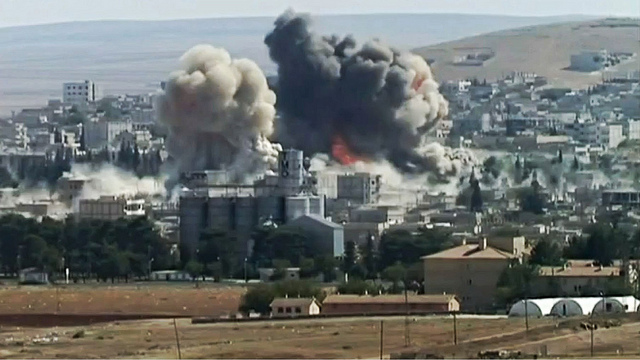 Let’s start with Ben Carson, Republican candidate for President of the United States. After his statements on Sunday saying that he would not support a Muslim as President of the United States and that Islam, as a religion, is incompatible with the US Constitution, his further explanations have compounded the problem. According to a Politico article, Carson reportedly clarified that someone with a Muslim heritage could win his support if that person is “willing to reject the tenets [of Islam] and accept the way of life that we have and clearly will swear to place the Constitution above their religion.” In case his meaning is not perfectly clear, he continued, “Then, of course, they will be considered infidels and heretics.” His campaign manager similarly clarified that there was no problem with someone who followed “Islam-lite.” Continue reading “Who Supports Al-Qaeda and ISIS?”
Let’s start with Ben Carson, Republican candidate for President of the United States. After his statements on Sunday saying that he would not support a Muslim as President of the United States and that Islam, as a religion, is incompatible with the US Constitution, his further explanations have compounded the problem. According to a Politico article, Carson reportedly clarified that someone with a Muslim heritage could win his support if that person is “willing to reject the tenets [of Islam] and accept the way of life that we have and clearly will swear to place the Constitution above their religion.” In case his meaning is not perfectly clear, he continued, “Then, of course, they will be considered infidels and heretics.” His campaign manager similarly clarified that there was no problem with someone who followed “Islam-lite.” Continue reading “Who Supports Al-Qaeda and ISIS?”
You Say Spiritual; They Say Political
 We often assume that actions are either political or spiritual, that those two categories are easily discernible and inherently distinct, but are they different? At times the distinction is legal, centering on the separation of church and state, while at other times the distinction reflects a personal judgment about the actions of another. Whatever judgment is made, however, reflects the assumptions and interests of the observer rather than an inherent difference, as two recent events illustrate. Continue reading “You Say Spiritual; They Say Political”
We often assume that actions are either political or spiritual, that those two categories are easily discernible and inherently distinct, but are they different? At times the distinction is legal, centering on the separation of church and state, while at other times the distinction reflects a personal judgment about the actions of another. Whatever judgment is made, however, reflects the assumptions and interests of the observer rather than an inherent difference, as two recent events illustrate. Continue reading “You Say Spiritual; They Say Political”
Speaking Strategically About Religion
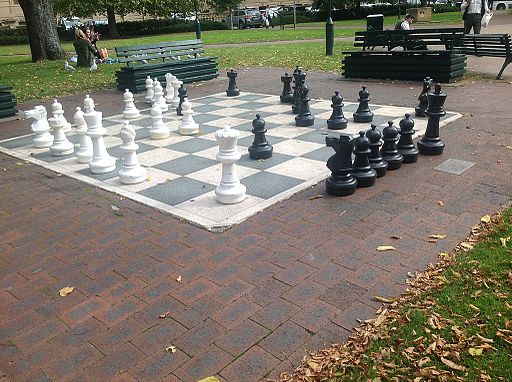 Over the last week, many have written about the labeling of ISIS as religious or not, as Islamic or not, both in response to last week’s summit on violent extremism and the recent Atlantic article on ISIS. Defending his administration’s refusal to label ISIS/ISIL as Islamic radicalism or extremism or a religious terrorist group, Obama asserted that he wanted to avoid connecting Islam with groups such as ISIS for strategic reasons, because he does not want to reinforce their self-descriptions that frame the conflict as religious and their ideology as true Islam. Rather than rehashing arguments about ISIS, the question that interests me is the role of strategic notions embedded in all discussions employing labels (really any words) to describe oneself or some other. In many respects, any description reflects particular moves in the chess game that is human society. Continue reading “Speaking Strategically About Religion”
Over the last week, many have written about the labeling of ISIS as religious or not, as Islamic or not, both in response to last week’s summit on violent extremism and the recent Atlantic article on ISIS. Defending his administration’s refusal to label ISIS/ISIL as Islamic radicalism or extremism or a religious terrorist group, Obama asserted that he wanted to avoid connecting Islam with groups such as ISIS for strategic reasons, because he does not want to reinforce their self-descriptions that frame the conflict as religious and their ideology as true Islam. Rather than rehashing arguments about ISIS, the question that interests me is the role of strategic notions embedded in all discussions employing labels (really any words) to describe oneself or some other. In many respects, any description reflects particular moves in the chess game that is human society. Continue reading “Speaking Strategically About Religion”
Context Matters (Sometimes)
 So many articles have already been written on the awful events that transpired in Paris this past week — articles flying fast and furious around Facebook, including my own wall — that there didn’t seem much to be added by penning yet another post here at the Edge. Continue reading “Context Matters (Sometimes)”
So many articles have already been written on the awful events that transpired in Paris this past week — articles flying fast and furious around Facebook, including my own wall — that there didn’t seem much to be added by penning yet another post here at the Edge. Continue reading “Context Matters (Sometimes)”
Supporting Jihadists
 When Sam Harris argues that we need to “defend them [nominal Muslims],” he fails to realize that the way he constructs Islam actually defends the ideas of those he labels “jihadists”. On Bill Maher’s HBO show a few days ago, Harris joined Ben Affleck and others in a robust discussion about representations of Islam, which followed Maher’s controversial comments a week earlier (which were the topic of Reza Aslan’s generalizing critique of generalizations on CNN which I discussed on Friday). While Harris and Maher both employed the language of “facts,” assertions like the following reflect their choices more than any facts. Continue reading “Supporting Jihadists”
When Sam Harris argues that we need to “defend them [nominal Muslims],” he fails to realize that the way he constructs Islam actually defends the ideas of those he labels “jihadists”. On Bill Maher’s HBO show a few days ago, Harris joined Ben Affleck and others in a robust discussion about representations of Islam, which followed Maher’s controversial comments a week earlier (which were the topic of Reza Aslan’s generalizing critique of generalizations on CNN which I discussed on Friday). While Harris and Maher both employed the language of “facts,” assertions like the following reflect their choices more than any facts. Continue reading “Supporting Jihadists”
Bill Maher and Reza Aslan, Two Peas in a Pod
 A scholar, a comedian, and two CNN anchors. While they contrasted their assertions vehemently, were they really so different? Reza Aslan’s take down of Bill Maher on CNN Tonight on Monday focused on Maher’s “unsophisticated” oversimplification of Muslims (which CNN anchors Don Lemon and Alisyn Camerota continued in their repeated generalization of “Muslim countries”). But, to attack them for oversimplifying, Aslan used his own problematic oversimplifications. Continue reading “Bill Maher and Reza Aslan, Two Peas in a Pod”
A scholar, a comedian, and two CNN anchors. While they contrasted their assertions vehemently, were they really so different? Reza Aslan’s take down of Bill Maher on CNN Tonight on Monday focused on Maher’s “unsophisticated” oversimplification of Muslims (which CNN anchors Don Lemon and Alisyn Camerota continued in their repeated generalization of “Muslim countries”). But, to attack them for oversimplifying, Aslan used his own problematic oversimplifications. Continue reading “Bill Maher and Reza Aslan, Two Peas in a Pod”
Can a State Be Fundamentalist?
Following the recent Supreme Court decision on Hobby Lobby, this image — created by a conservative young woman who wanted to signal defiance to American liberals — received a lot of attention:

One response was to point out that this is little different from other forms of “religious fundamentalism.” The story — posted by a friend of mine on Facebook with the comment “Checkmate” — posted a photo comparison with commentary: Continue reading “Can a State Be Fundamentalist?”
Consequential Maps
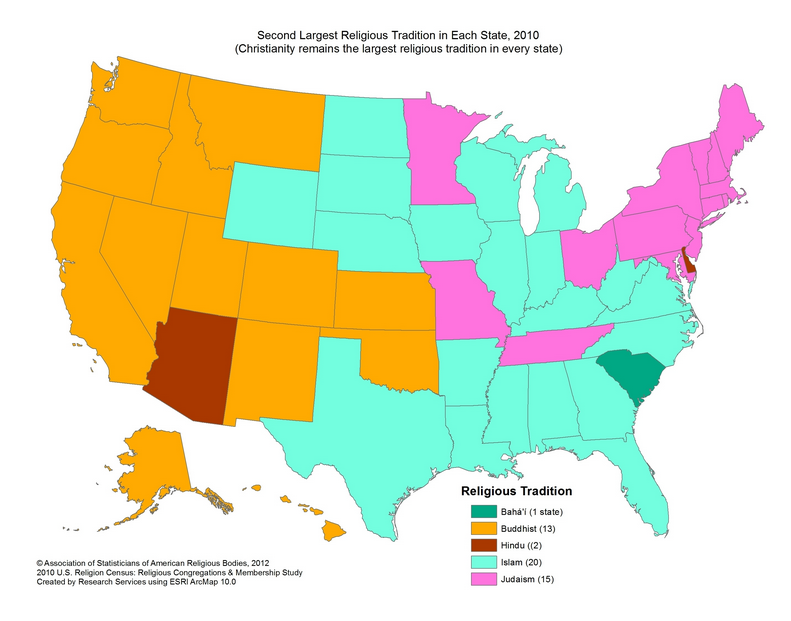 This recent map making the social media rounds depicts the runner-up religions for each U.S. state, based on data from the US Religious Census project. NPR, among others, has discussed the map, attempting to explain the anomalies in the map. Why is South Carolina’s second largest religion listed as Bahai and Tennessee’s Judaism when every other southeastern state is Islam? Why are Delaware and Arizona the only states with Hinduism as the second largest religion? Continue reading “Consequential Maps”
This recent map making the social media rounds depicts the runner-up religions for each U.S. state, based on data from the US Religious Census project. NPR, among others, has discussed the map, attempting to explain the anomalies in the map. Why is South Carolina’s second largest religion listed as Bahai and Tennessee’s Judaism when every other southeastern state is Islam? Why are Delaware and Arizona the only states with Hinduism as the second largest religion? Continue reading “Consequential Maps”
Who Supports Persecution?
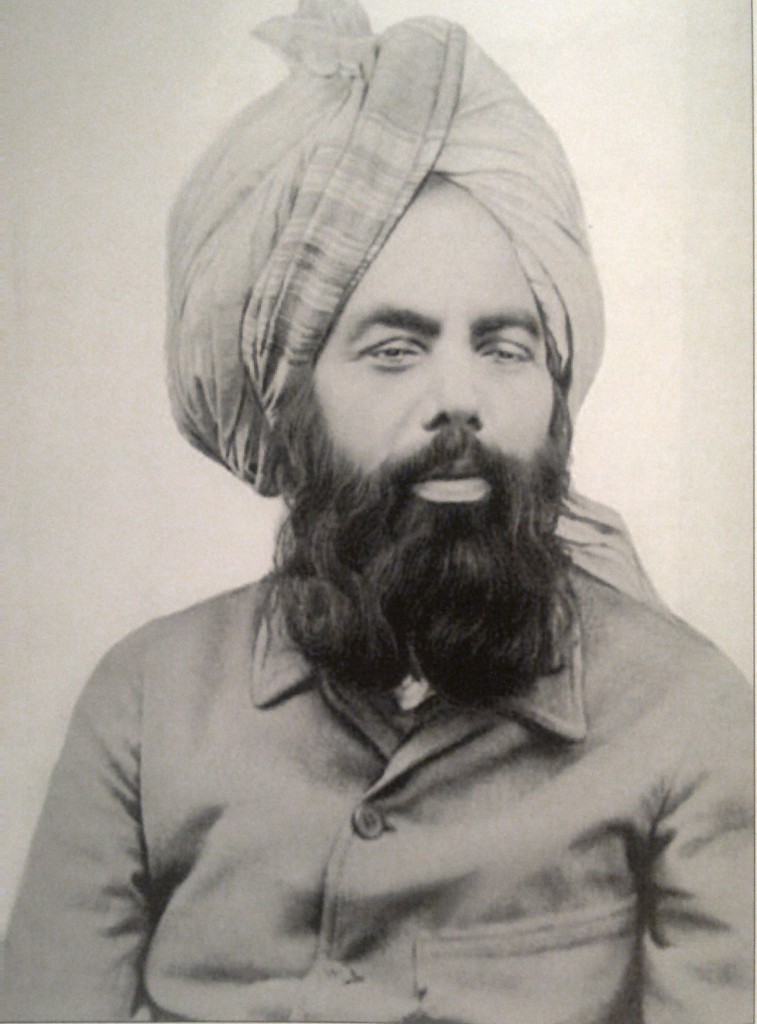 The persecution of Ahmadis has hit the news again with the killing of an American Ahmadi doctor in Pakistan last week while he was volunteering in an Ahmadi hospital. Having written on the issues of labels in relation to the Ahmadi before at the Bulletin for the Study of Religion blog, I found the careful phrasing of the Reuters article about the shooting of the doctor impressive. Describing the Ahmadi as “a group that says it is Muslim but whose religion is rejected by the state,” I appreciated the precision with which the author acknowledged who described the Ahmadi as Muslim and who rejected that label. This phrasing is similar to what I have advocated generally. To acknowledge that labels are both contested and consequential by stating with precision who applies and contests particular labels is imperative. Continue reading “Who Supports Persecution?”
The persecution of Ahmadis has hit the news again with the killing of an American Ahmadi doctor in Pakistan last week while he was volunteering in an Ahmadi hospital. Having written on the issues of labels in relation to the Ahmadi before at the Bulletin for the Study of Religion blog, I found the careful phrasing of the Reuters article about the shooting of the doctor impressive. Describing the Ahmadi as “a group that says it is Muslim but whose religion is rejected by the state,” I appreciated the precision with which the author acknowledged who described the Ahmadi as Muslim and who rejected that label. This phrasing is similar to what I have advocated generally. To acknowledge that labels are both contested and consequential by stating with precision who applies and contests particular labels is imperative. Continue reading “Who Supports Persecution?”
Islam, Islamic, Islamist
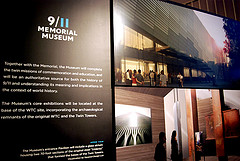 Recently, Omid Safi, a professor at UNC Chapel Hill, advanced several points about the identifying labels commonly used in memorialization, including the 9/11 Memorial Museum, and news accounts. He responds to one question posed to him about critiques of labels, “What should we call it when acts of terrorism are committed by Muslims?” by explaining his concern with the application of the “Islamic terrorist” label, Continue reading “Islam, Islamic, Islamist”
Recently, Omid Safi, a professor at UNC Chapel Hill, advanced several points about the identifying labels commonly used in memorialization, including the 9/11 Memorial Museum, and news accounts. He responds to one question posed to him about critiques of labels, “What should we call it when acts of terrorism are committed by Muslims?” by explaining his concern with the application of the “Islamic terrorist” label, Continue reading “Islam, Islamic, Islamist”
